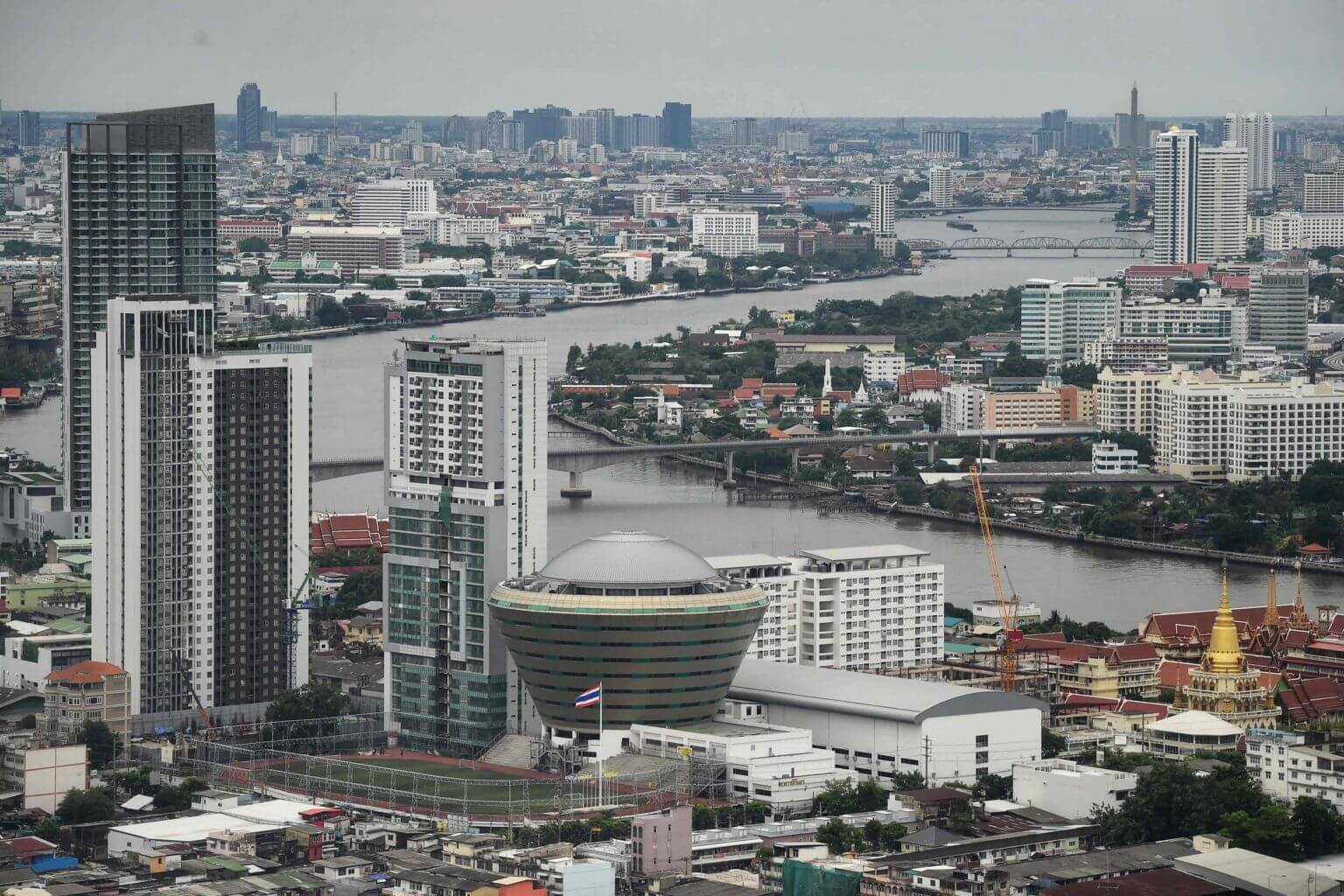Thailand deliberating billions of dollars in stimulus package
Sign up now: Get ST's newsletters delivered to your inbox

Buildings and temples along the Chao Praya River in Bangkok, on Aug 6, 2019.
PHOTO: AFP
BANGKOK - The new Thai government is lining up a $14 billion stimulus package to boost the sluggish economy.
The package includes 57 billion baht (S$2.56 billion) in agricultural subsidies, welfare and cash benefits for low-income earners and a 1,500 baht handout to every domestic tourist, said Finance Minister Dr Uttama Savayana in a Facebook post.
Thailand's four million rice-farming households will each receive 500 to 800 baht per 1,600 sq m of farmland in light of a drought considered to be the worst in a decade, while loans of up to 500,000 baht will be available to farmers without interest in the first year, Dr Savayana said on Friday (August 16).
The entire package is estimated to cost as much as 316 billion baht.
Thailand's economy has grown at the slowest pace in four years due largely to the trade war and the strength of the Thai baht, which has jumped by nearly 8 per cent against the United States dollar over the past 12 months.
GDP grew only 2.8 per cent in the first quarter, down from 3.6 per cent in the final three months of 2018.
The decline has seen the official growth forecast for the year cut from 3.6 per cent to 3.3 per cent.
Exports, making up 68 per cent of GDP, are bearing the brunt of the trade dispute between China and the US.
Overall shipments declined 2.15 per cent year-on-year in June while exports to China, Thailand's biggest trading partner, plunged 14.9 per cent.
The strong baht and the weak yuan, which is at an 11-year low, not only affected Thai exports to China but also the tourism industry, which makes up about 20 per cent of GDP. The number of Chinese tourists, the biggest group of visitors to Thailand, dropped 8.89 per cent in the first quarter of this year compared with the same period last year.
The government has proposed 15-day visa exemptions to visitors from China and India between November and October next year, pending a cabinet decision expected this month.
And the Bank of Thailand cut its benchmark interest rate on Wednesday by a quarter percentage point to 1.5 per cent for the first time in four years. At least four commercial banks following suit by cutting up to 25 basis points on Thursday.
¨The stimulus measure should at least help pull the GDP growth back up to 3 per cent, not more," economist Somchai Pakapaswiwat told the Straits Times.
"But this is merely a painkiller, not the actual remedy to the problem. It's only a short-term measure. There´s much more to be done."
Dr Pakapaswiwat pointed to long-term measures such as investment in infrastructure and human capital by improving the education system as the best way to increase Thailand's competitiveness.
Mr Pichai Naripthaphan, a former energy minister in the Yingluck Shinawatra administration and head of the economic team for the now-defunct Thai Raksa Chart Party, was less optimistic.
Mr Naripthaphan pointed to more investment in high technology involving robotic process automation and artificial intelligence and negotiations for free-trade deals as keys to sustainable economic growth.
Stimulus measures are also being instigated elsewhere.
China will roll out a plan to boost disposable income this year and in 2020 to spur consumption as the economy slows, Reuters reported.
Data this week showed that its economy stumbled more sharply than expected in July, with retail sales pointing to growing consumer caution, as the intensifying US trade war took a heavier toll on businesses and consumers.
On Thursday, Hong Kong announced measures to support enterprises and relieve people's financial burden, which will cost a total of about HK$19.1 billion (S$3.4 billion), Xinhua reported.


